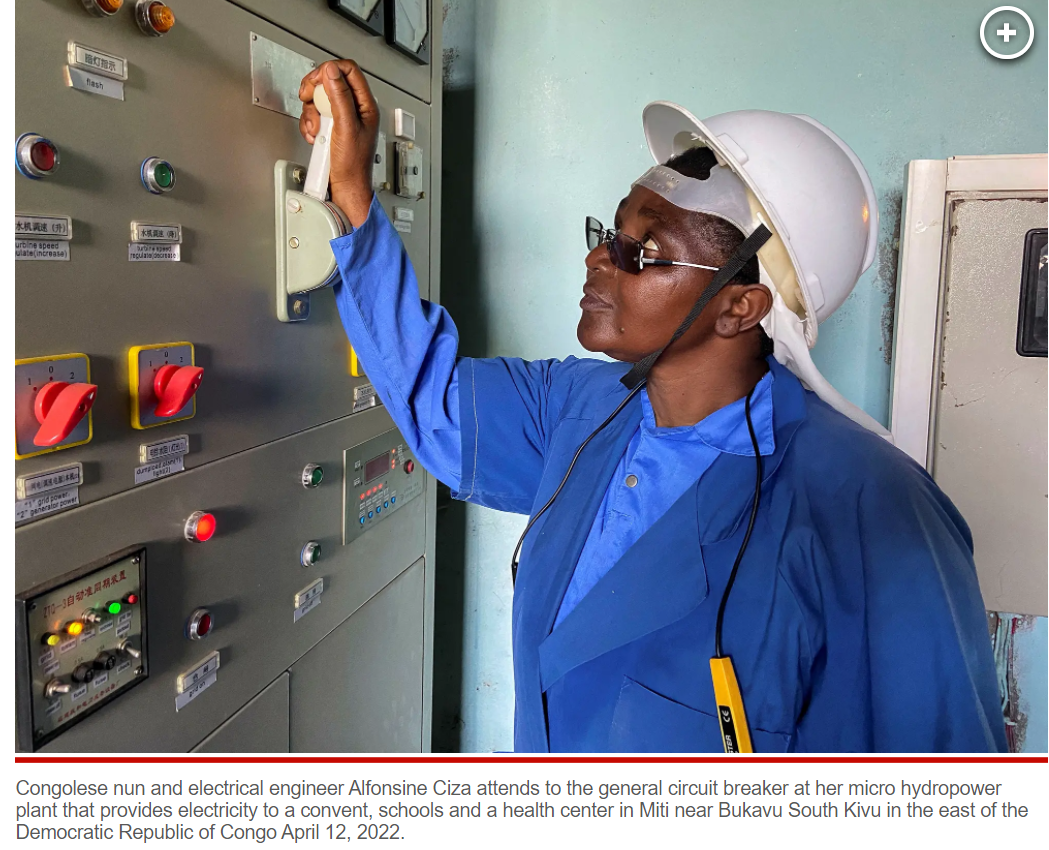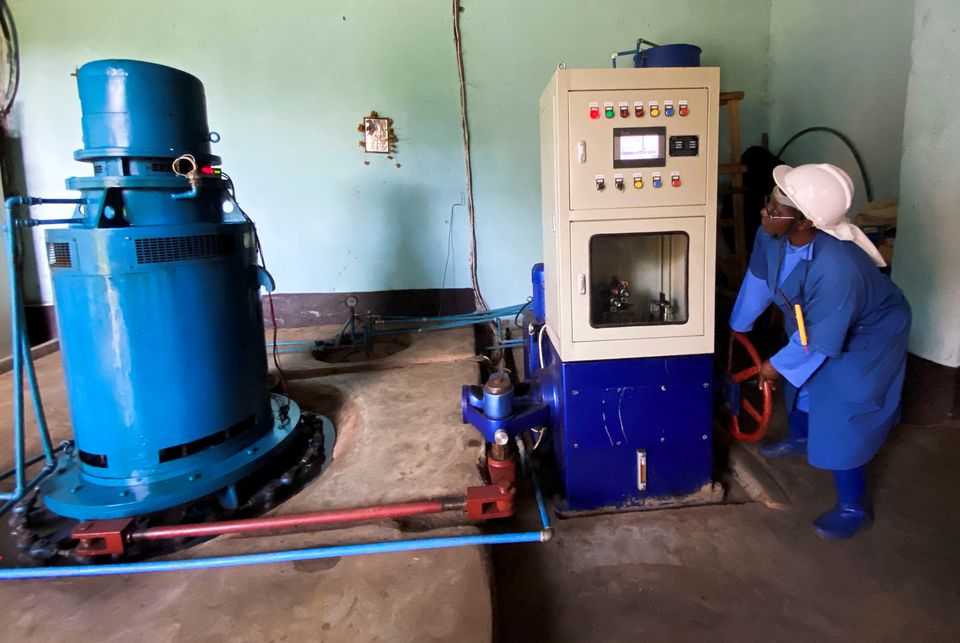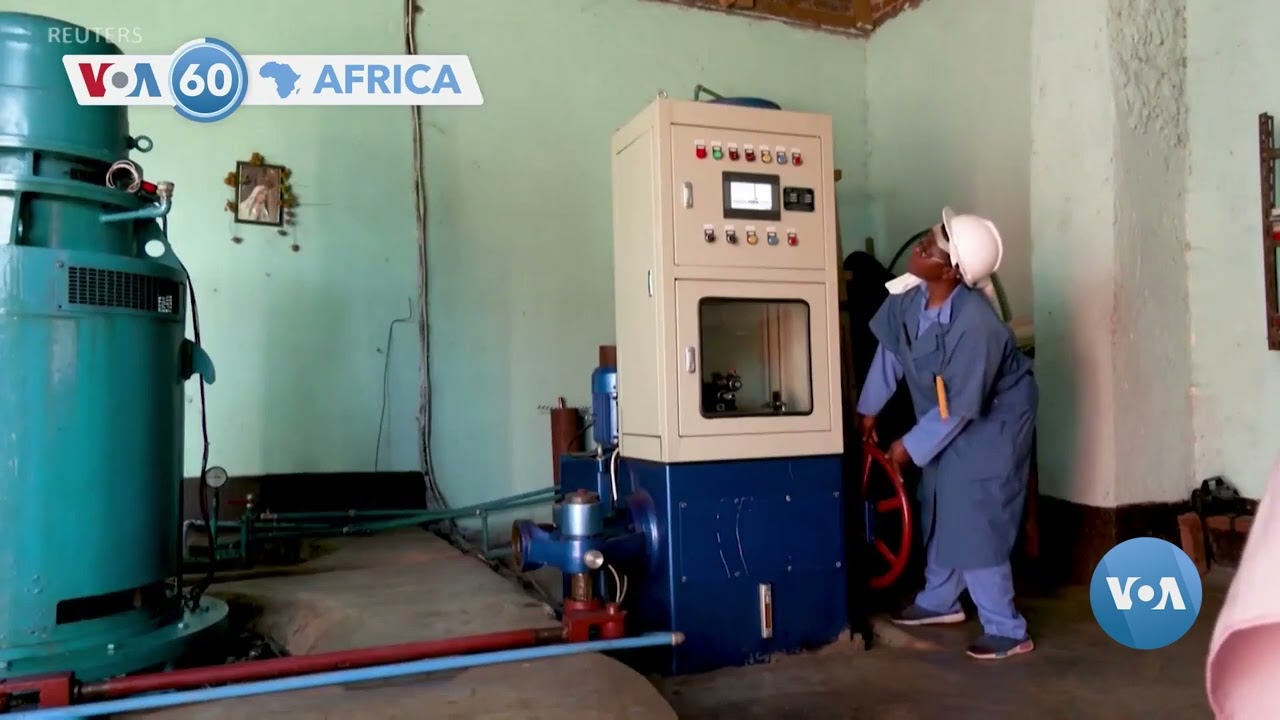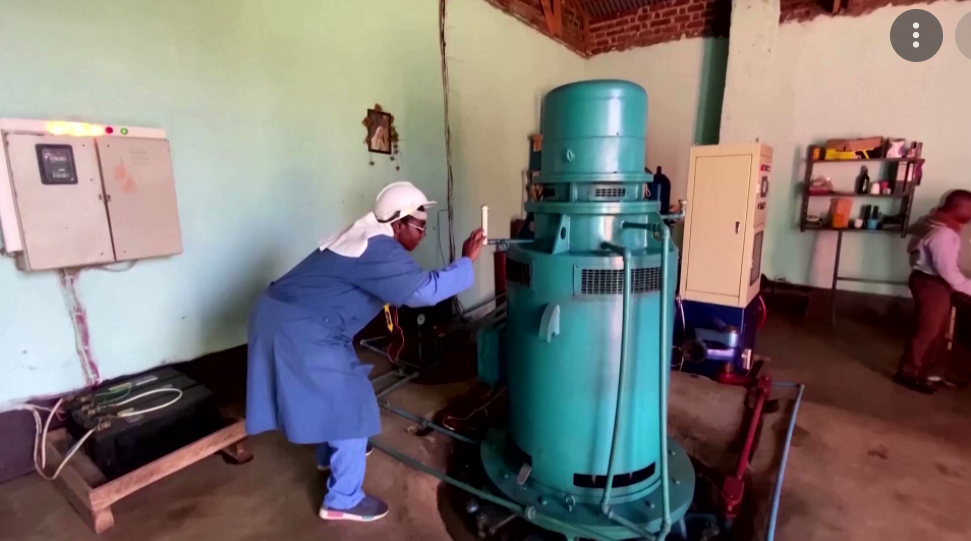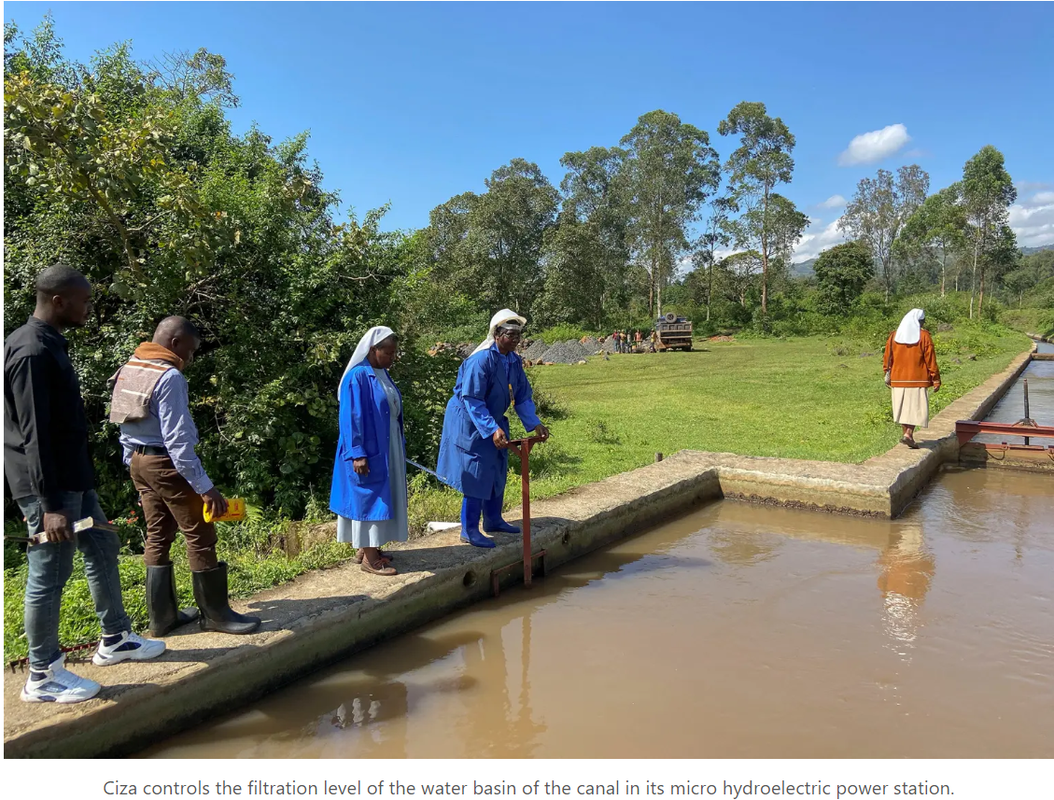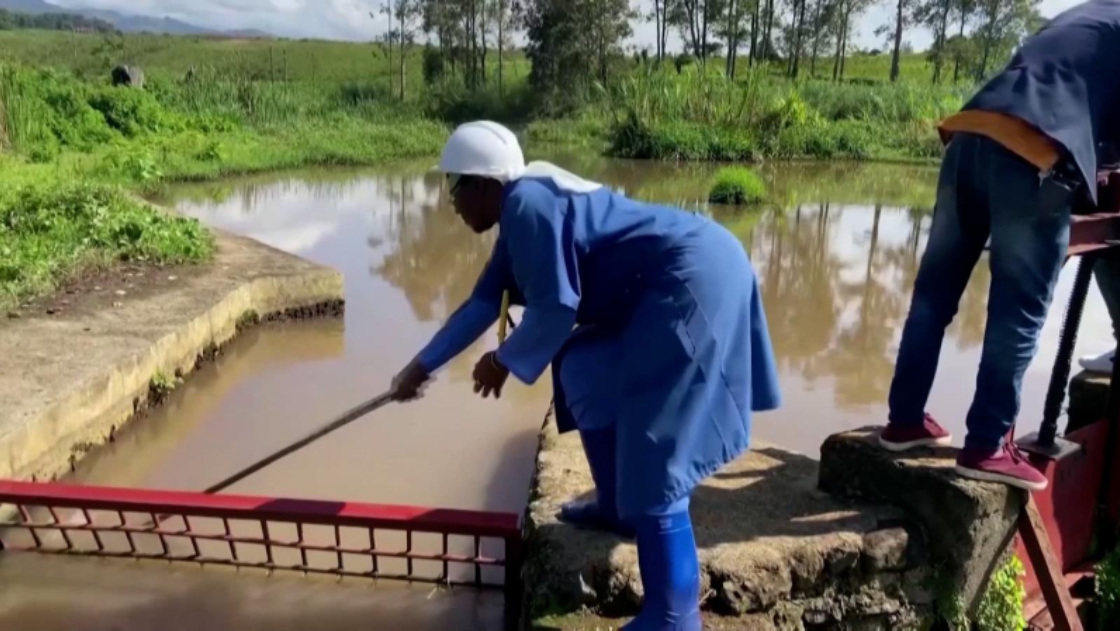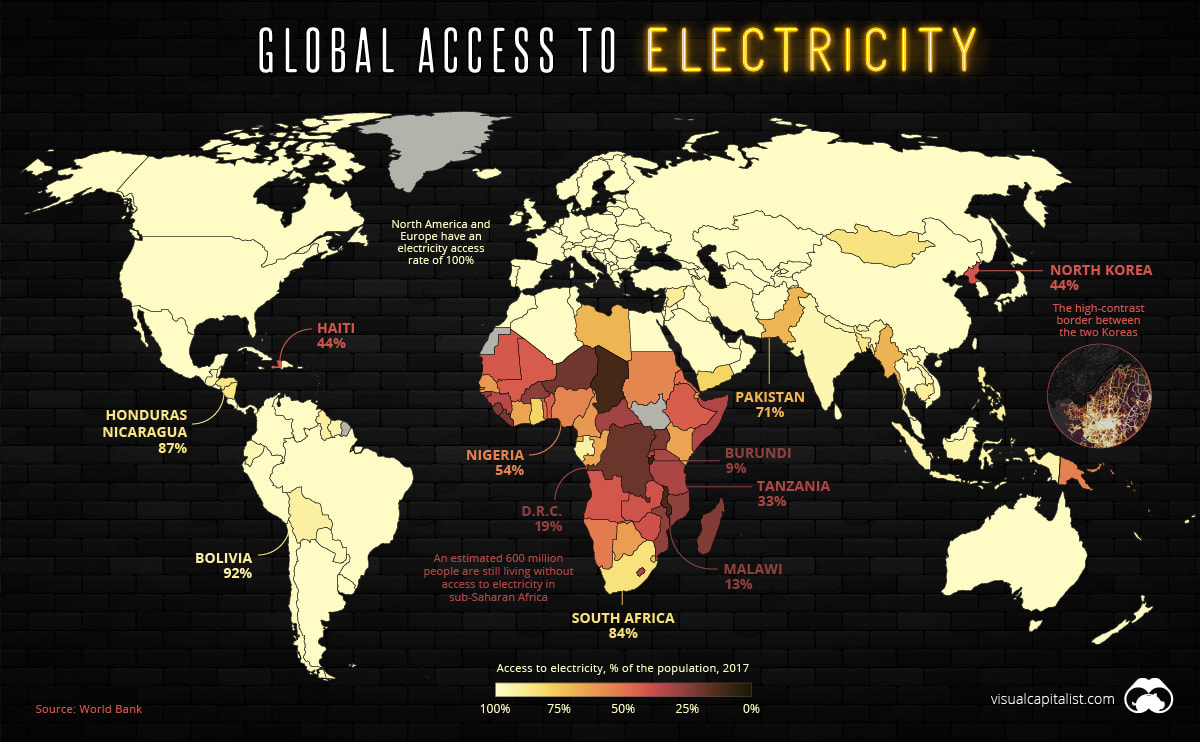26.04.2022
Congo Nun Overcomes Blackouts With Homemade Hydroelectric Plant
Sister Alphonsine Ciza spends most of her day in gumboots, her white veil tucked under a builder’s hat, manning the micro-hydroelectric plant she built to overcome daily electricity cuts in her town of Miti in eastern Democratic Republic of Congo.She works around the clock with a team of nuns and engineers, greasing machinery and checking the dials of a generator that is fed from a nearby reservoir and lights up a convent, a church, two schools and a clinic free of charge. Without the plant, residents would only have electricity for a few hours two or three days a week. “We sisters ... can’t function this way because we have to provide a lot of services,” said Ciza (55), a portable voltage meter slung around her neck, in the town of about 300 000 inhabitants near the border of Rwanda. Blackouts are a daily disruption in the Democratic Republic of Congo, a vast central African country of about 90 million people, which sources most of its electricity from a run-down and mismanaged hydropower system. Fed up with relying on candlelight and costly fuel-powered generators, Ciza started raising money in 2015 to build the plant. She picked up skills as a young nun by repairing electrical faults around the convent, which persuaded her superiors to send her to study mechanical engineering. It took Ciza’s convent three years to accumulate the required $297 000 (R4.62 million) and build the plant, which generates between 0.05MW and 0.1MW. Thanks to Ciza’s efforts, students at Miti’s Maendeleo secondary school can now learn computer skills from screens, rather than from books. Credit: Reuters
Poverty deprives people of adequate education, health care and of life's most basic necessities- safe living conditions (including clean air and clean drinking water) and an adequate food supply. The developed (industrialized) countries today account for roughly 20 percent of the world's population but control about 80 percent of the world's wealth.
Poverty and pollution seem to operate in a vicious cycle that, so far, has been hard to break. Even in the developed nations, the gap between the rich and the poor is evident in their respective social and environmental conditions.
Poverty and pollution seem to operate in a vicious cycle that, so far, has been hard to break. Even in the developed nations, the gap between the rich and the poor is evident in their respective social and environmental conditions.
